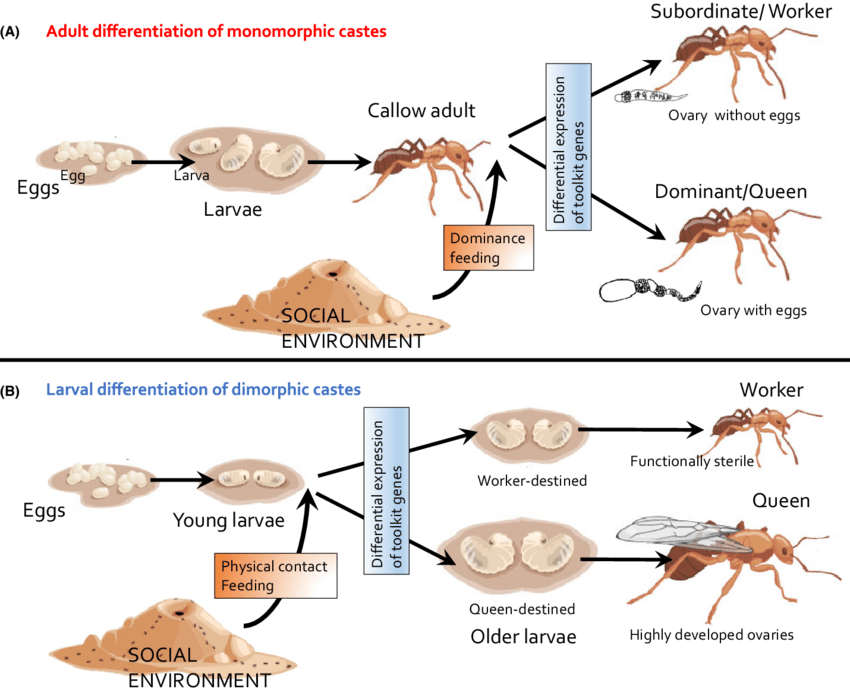In the intricate world of social insects, queens stand as symbols of specialization, their roles seemingly predetermined by evolutionary forces. Traditionally viewed as egg-laying machines, ant queens have long been regarded as intrinsically specialized entities within their colonies. However, recent research conducted at Johannes Gutenberg University Mainz challenges this entrenched perspective, revealing the profound influence of social environments on the behavioral specialization of ant queens. Led by Dr. Romain Libbrecht, the study sheds new light on the dynamic interplay between queens, workers, and the social context in shaping the division of labor within insect societies.
Reevaluating Traditional Assumptions: The concept of insect societies as superorganisms governed by specialized individuals has long been ingrained in scientific discourse. Central to this paradigm is the belief that ant queens exhibit innate specialization in egg-laying, while workers assume non-reproductive tasks such as brood care. However, Dr. Libbrecht and his team embarked on a journey to challenge these fundamental assumptions, focusing their attention on ant species where founding queens establish colonies independently, without the assistance of workers. In doing so, they uncovered a complex interplay between individual behavior and social dynamics, reshaping our understanding of queen specialization.
Insights from the Black Garden Ant: The study centered on the black garden ant, Lasius niger, native to Germany, offering a unique window into the behavioral plasticity of ant queens. Contrary to prevailing notions, founding queens were found to exhibit a lack of specialization in early colony formation, assuming all tasks within the nest to ensure the survival of the first generation of workers. However, the introduction of workers into the nest triggered a profound shift in queen behavior, suppressing their natural predisposition towards brood care and promoting specialization in egg-laying.
Dynamic Responses to Social Cues: One of the most striking findings of the study was the reversible nature of queen specialization, highlighting the adaptability of ant colonies to changing social environments. When isolated from workers, specialized egg-laying queens rapidly reverted to the brood care behavior observed in founding queens, even after years of specialization. This dynamic response underscores the pivotal role of social cues in shaping queen behavior, challenging the notion of intrinsic specialization and highlighting the plasticity of insect societies.
Implications for Understanding Insect Societies: The discovery of social control over queen specialization carries profound implications for our understanding of insect societies and their division of labor. By illuminating the influence of social environments on individual behavior, the study offers a nuanced perspective on the mechanisms driving colony organization and function. Moreover, it underscores the need to reevaluate traditional paradigms in light of new empirical evidence, paving the way for future research into the complex dynamics of social insect societies.
As our understanding of insect societies continues to evolve, the study conducted by Dr. Libbrecht and his team serves as a beacon of insight into the intricate interplay between individual behavior and social context. By unraveling the influence of social environments on ant queen specialization, the research challenges conventional wisdom and opens new avenues for exploring the complexities of insect sociality. As we delve deeper into the mysteries of colony organization, each discovery brings us closer to unraveling the secrets of the insect world and the remarkable adaptations that shape their societies.
